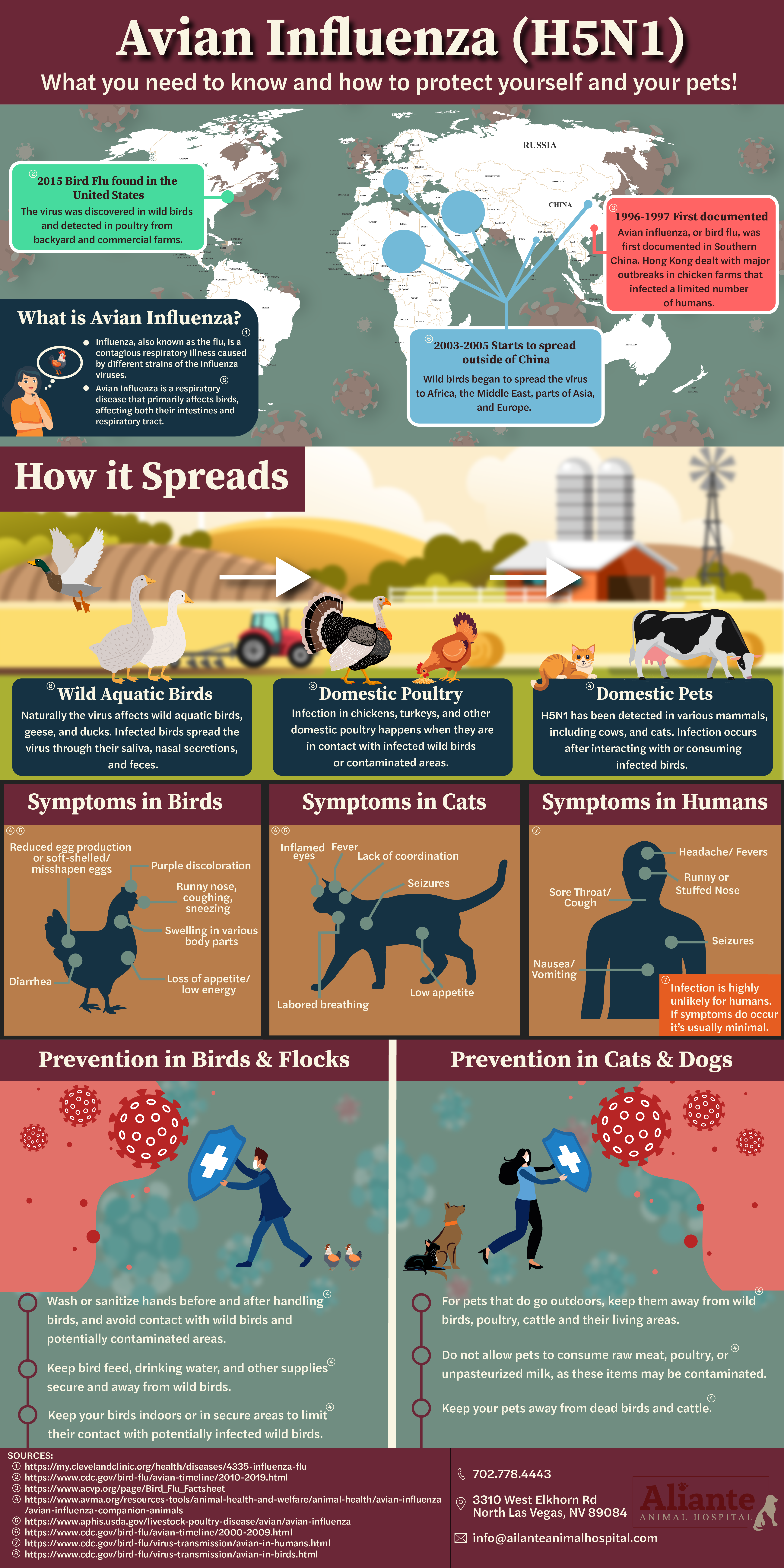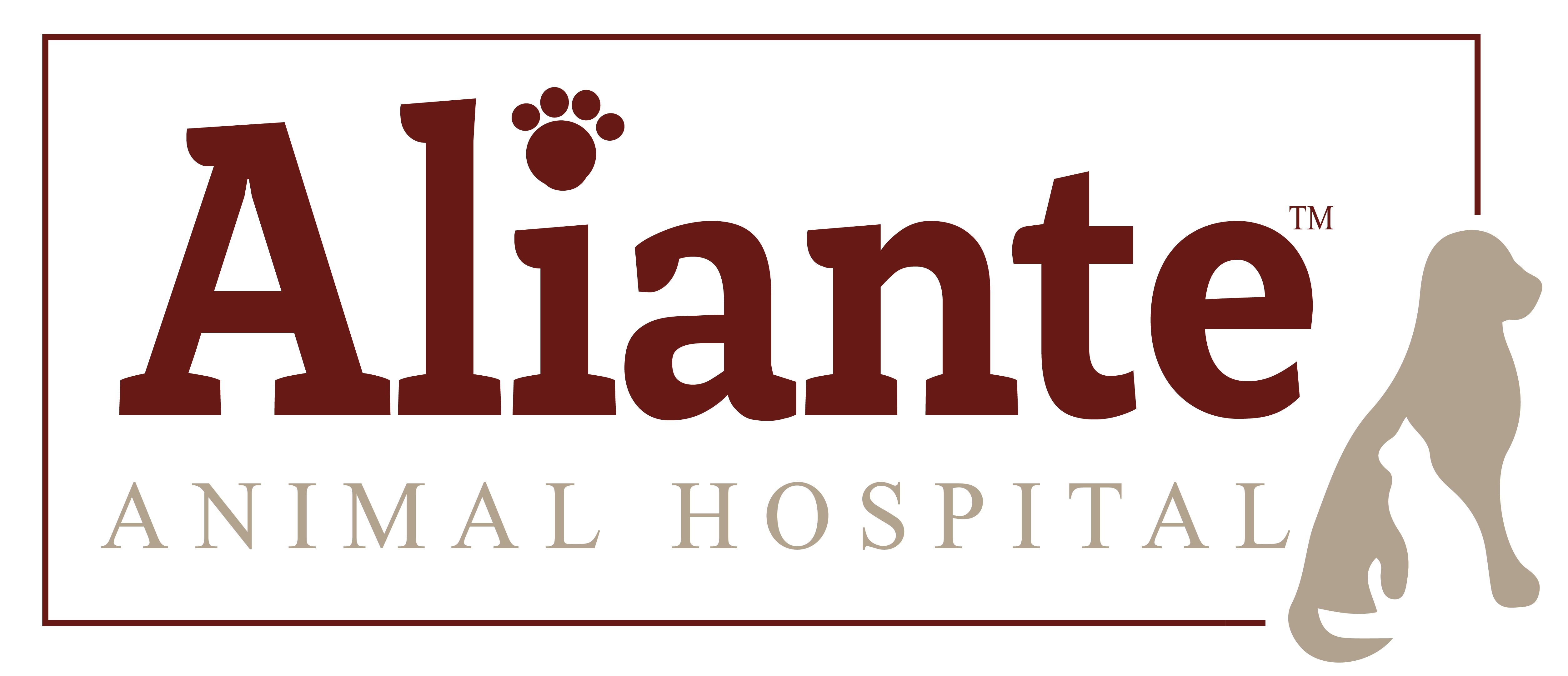Dr. Vassallo explains what avian influenza is, its symptoms, and how you can protect yourself and your pet.

Avian influenza (bird flu) is a highly contagious viral infection that affects birds of all types – from backyard chickens to wild waterfowl. As veterinary professionals, we want to help pet owners understand this important disease and how it can impact not only birds, but also potentially cats and humans.

Image: Chiem Seherin/Pixabay
What is Avian Influenza?
The virus responsible for avian influenza belongs to the Influenza A family of viruses. These viruses are particularly concerning because they can mutate rapidly and spread quickly through bird populations. While some strains cause mild illness, others can be highly pathogenic, leading to severe disease and death in infected birds.
Signs and Symptoms
Birds infected with avian influenza typically show a range of symptoms. The disease often manifests through respiratory distress, with affected birds showing difficulty breathing and unusual respiratory sounds. Birds may also experience a decrease in egg production, show signs of lethargy, and develop swelling around their head and neck areas. In severe cases, the disease can cause purple discoloration of wattles and combs (the comb is the fleshy appendage on top of the head, and the wattles are the fleshy flaps of skin hanging below the beak), and sadly, can lead to sudden death.
While less common, cats can become infected with avian influenza, usually after direct contact with infected birds. Symptoms in cats may include fever, lethargy, respiratory issues, vomiting or diarrhea, and even neurological issues in severe cases.
Prevention and Protection
Preventing avian influenza requires a comprehensive approach to pet health and safety. Creating physical barriers between domestic birds, pets and wild populations is crucial, as wild birds are often carriers of the virus. For bird owners, regular cleaning and disinfection of bird environments, equipment, and feeding areas play a vital role in prevention. Additionally, implementing strict measures, such as dedicated footwear and clothing for bird areas, can significantly reduce the risk of virus introduction.

Image: demyanenkoc157/ Pixabay
Risk to Humans
While human infections with avian influenza are relatively rare, they can occur through close contact with infected birds or their environments. The severity of human infections can vary considerably, ranging from mild symptoms to severe illness. Healthcare and animal care workers are typically at higher risk due to their increased exposure to potentially infected birds.
The Role of Veterinary Care
Professional veterinary care is essential in both preventing and managing avian influenza cases. Regular check-ups can help identify potential health issues early, and veterinarians can provide guidance on proper safety measures. Early detection and rapid response are crucial factors in controlling potential outbreaks.
If you notice any changes in your bird or pets behavior, appetite, or general health, it’s important to seek veterinary attention promptly. Swift action can make a significant difference in the outcome of any health condition, including potential avian influenza cases.
Click the image below to learn more about Avian Influenza!



